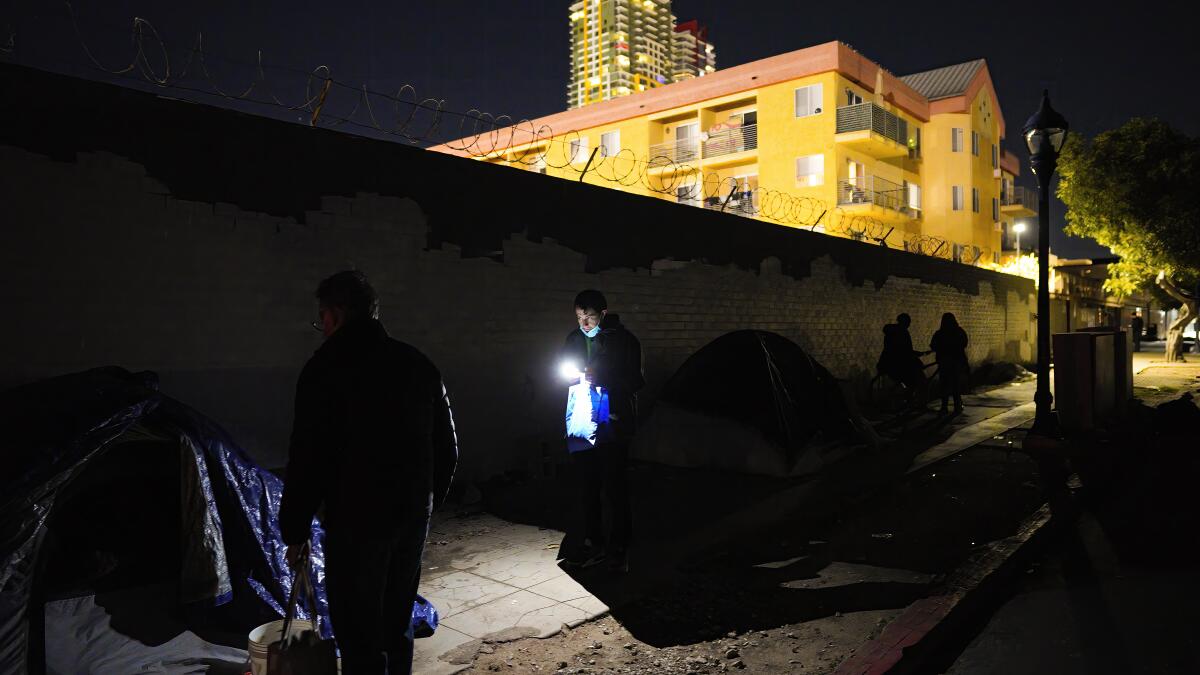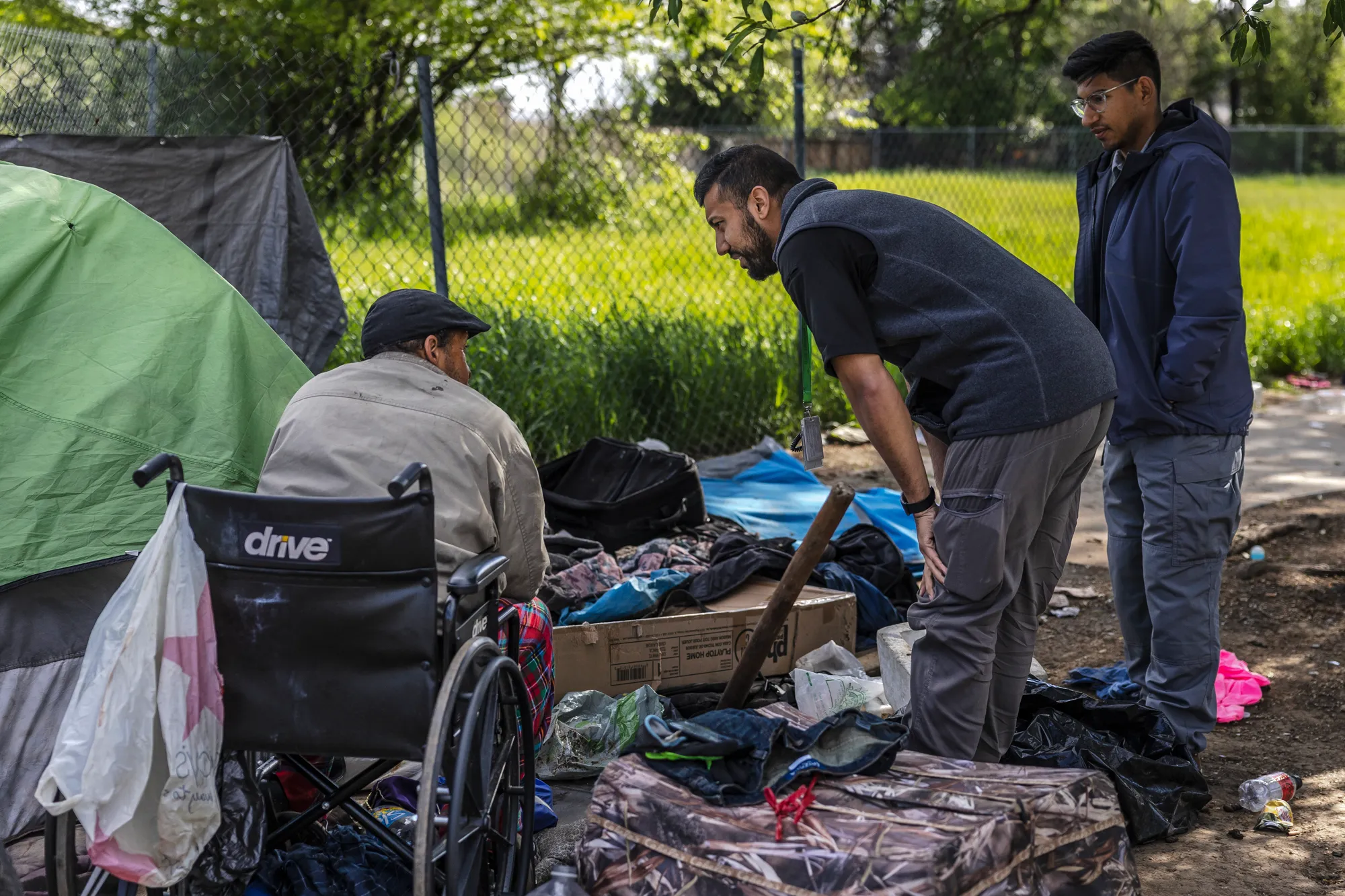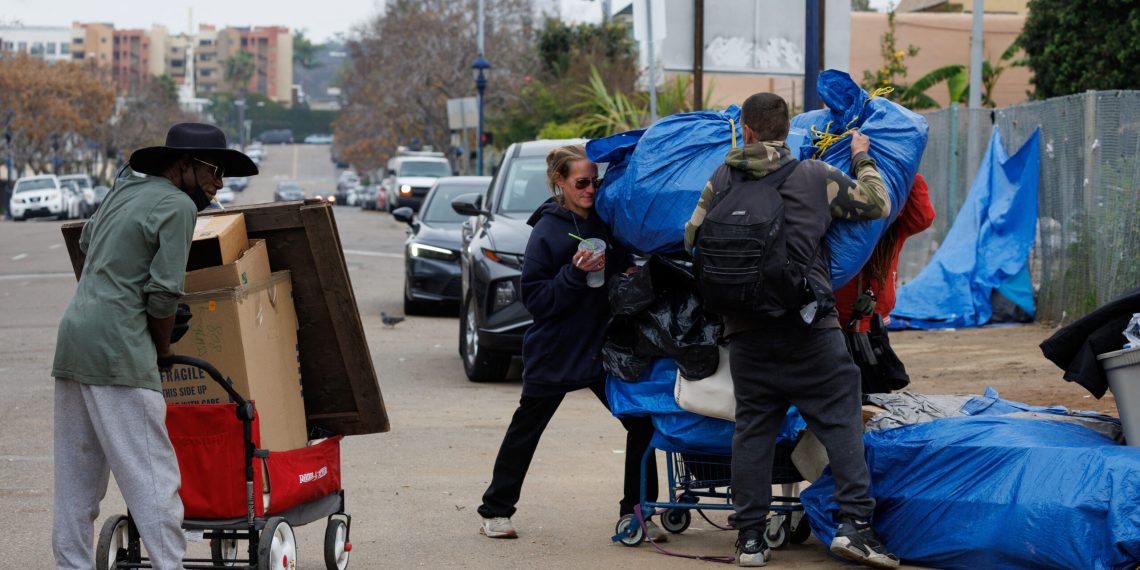San Diego’s aggressive campaign against homeless encampments has reshaped the city’s landscape over the past seven months, prompting statewide attention. Now, two California state senators, one Republican and one Democrat, have collaborated on a proposal to extend San Diego’s ordinance statewide.
Despite claims of success from city officials, advocates argue that the strategy has simply relocated homeless individuals to less visible areas, with the root causes of homelessness left unaddressed.

The proposal comes amid a growing sense of urgency surrounding homelessness and affordable housing in California, with polls indicating widespread public concern. The issue has garnered national attention, with the U.S. Supreme Court set to weigh in on the legality of anti-camping laws affecting homeless individuals.
A case from Oregon scheduled for arguments in April may determine the constitutionality of enforcing such laws when adequate shelter is unavailable.
San Diego’s ordinance, passed in June 2023, allows police to enforce camping laws in various public areas, irrespective of shelter availability. While some view this bipartisan effort as a step towards addressing homelessness, others criticize it as a superficial solution that fails to address the underlying housing crisis.
Despite bipartisan consensus on the need for enforcement, there remains a broader acknowledgment that sustainable solutions must prioritize affordable housing initiatives.

San Diego’s Mayor Todd Gloria, a Democrat, acknowledges the limitations of enforcement measures and emphasizes the city’s efforts to connect homeless individuals with services.
The city has expanded shelter capacity and established safe sleeping sites and parking places for those in need. However, challenges persist, with many individuals pushed beyond the reach of service providers.
Both Republican Senator Brian Jones and Democrat Senator Catherine Blakespear advocate for a multifaceted approach to homelessness, emphasizing the importance of providing permanent housing while addressing immediate needs.
Their collaboration underscores the complexity of the issue and the necessity of bipartisan cooperation in finding lasting solutions.




